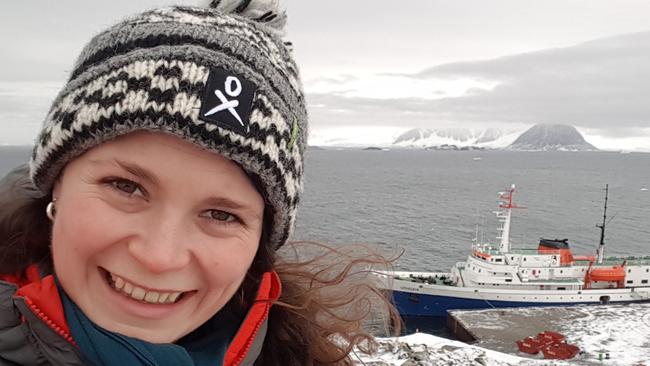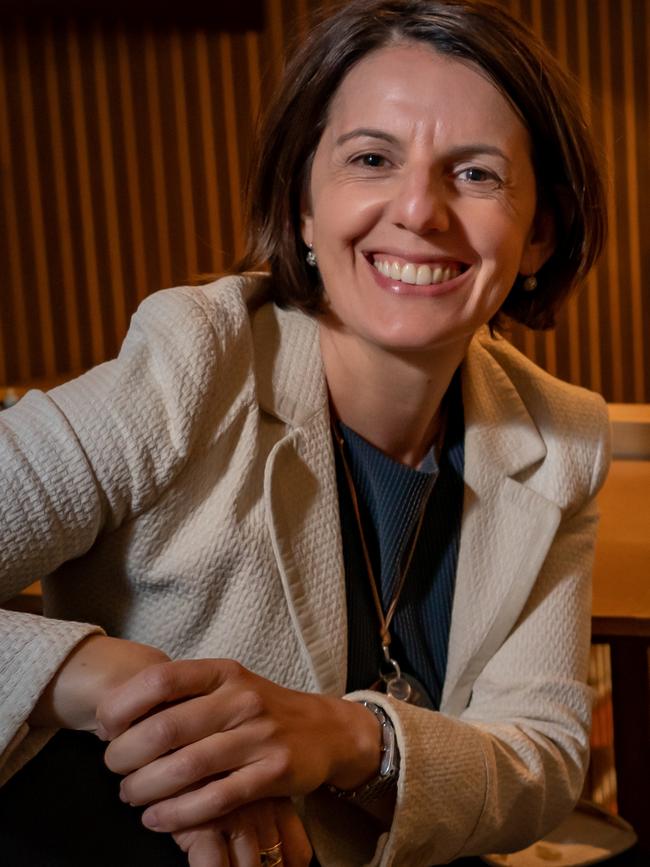The Covid threat: women suffer more in science stakes
Building the careers of women in our nation’s laboratories is even more crucial in the pandemic.

Ask children to draw a picture of a scientist and you are likely to get Einstein – a man in a white coat with crazy hair. The images have become a little more diverse in recent years as governments and institutions have worked hard to promote STEM subjects as open to girls as well as boys. But the stereotypes are still strong, according to Anna-Maria Arabia, the chief executive of the Australian Academy of Science.
And that’s one of the reasons the academy is one of several organisations backing screenings of the documentary, The Leadership, covering the 2016 journey to Antarctica of a group of women scientists.
That journey, part of a 12-month leadership program called Homeward Bound, has been repeated annually, although Covid has stalled it for now. The documentary has been screened in Canberra, Sydney, Melbourne and Brisbane in the past fortnight at discussion events hosted by UN Women as part of a three-year campaign to take it into boardrooms, workplaces and classrooms as an advocacy tool.
Arabia tells The Deal that only 16 per cent of all STEM-skilled workforce in Australia are women. The numbers are better in universities, where women comprise 29 per cent of science staff. But in the wider community only 8 per cent of people – male and female – at the CEO level are trained in science.

The academy wants to reach STEM gender equity by 2030 and is encouraging organisations to develop long-term strategies, including making sure women scientists are visible role models and recognising the need for leadership and accountability on the issue.
Is Arabia hopeful of real change?
“I have been in this area for the better part of 20 years,” she says. “If you had asked me in 2015, I would have been less optimistic but I think there has been a range of initiatives that have been transformational and the needle is starting to move.” But she warns that Covid is having a negative impact: “We need to make sure we don’t undo all of the hard-won gains because of the result of pandemic.”
Covid prevented many people going into their labs to continue research – which is essential in order to publish and in turn to achieve any career advancement.
Women researchers are particularly impacted, says Arabia, because they are more likely to be casual employees.
As well, the grant-to-grant nature of research influences a woman’s sense of, “can I stop and take a career break and work in industry for a couple of years, or take a break to have children”.
Arabia says another problem is that the women are often asked to do extra work around gender issues: “If you are one of the few women in a maths department you will be called upon to be on every committee to represent the department at all events, which takes away from work and exacerbates the problem. That burden is spread more evenly when there are more women around.”
Nicole Fetchet, 28, who runs outreach programs at Canberra’s Questacon – The National Science and Technology Centre – was among the scientists on the second Homeward Bound trip to Antarctica in 2018.
She says it was “an amazing melting pot” of women at different points in their careers and she learnt a great deal about leadership in the science “ecosystem” during the 22-day journey.
Fetchet studied science at the University of Wollongong, before moving to the Australian National University for a masters in science communication. As the national networks co-ordinator at Questacon, Fetchet sees first-hand the issues facing women in the sector.
She says there’s a need for a real culture shift: “The biggest challenge we face is creating workplaces that are conducive for women to stay. We often refer to the leaky pipeline in the STEM sector.
“We are getting women into the space but they are being pushed out or they are not being fostered and supported to maintain their positions.
“They are not getting promotions because they have gaps in their professional careers which are often frowned upon.”
You can see The Leadership on ABC iView



